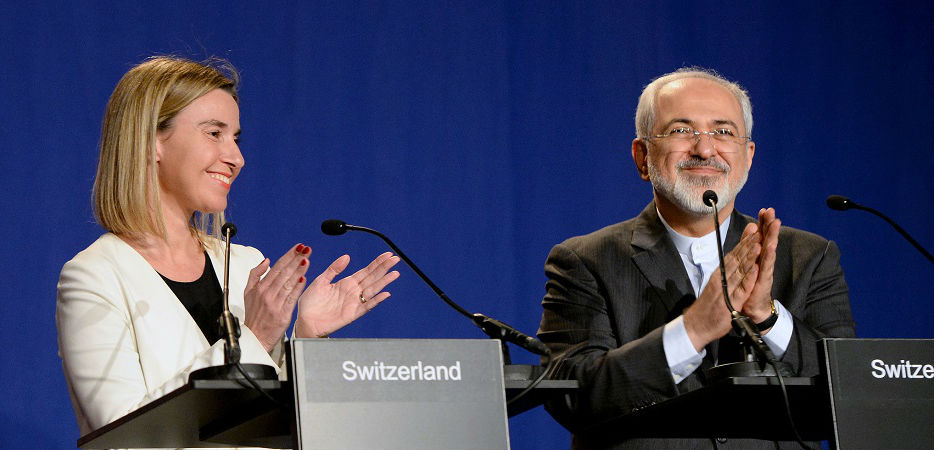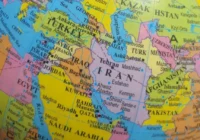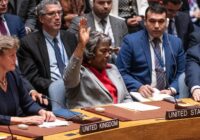In this edition of the Interview, Fair Observer talks to former British Ambassador Peter Jenkins.
On April 2, EU High Representative for Foreign Affairs Federica Mogherini and Iranian Foreign Minister Mohammad Javad Zarif announced that a framework agreement had been reached on Iran’s nuclear program. Negotiations had gone into overtime after it became clear that the self-imposed March 31 deadline would not be met.
After foreign ministers flew in and out of Switzerland for days, attending marathon negotiating sessions, it was revealed that Iran had accepted limitations on its uranium enrichment levels and capacity, and that its stockpile would be limited for “specified durations.” Furthermore, the joint statement stipulated that Natanz would be the only uranium enrichment site. The Iranians also agreed to an inspections regime to verify their “key nuclear commitments.” In return, nuclear-related sanctions against Iran would be terminated.
However, shortly after the announcement, debates were triggered over details concerning the agreement. A crucial point for the Iranians is the timing for the lifting of sanctions. Iranian President Hassan Rouhani declared: “We will not sign any agreement, unless all economic sanctions are totally lifted on the first day of the implementation of the deal.” In contrast, several days before Rouhani’s speech, the United States made it clear that sanctions would be phased out gradually.
In this edition of the Interview, a series of conversations with individuals from around the world, Fair Observer talks to Ambassador Peter Jenkins, a former permanent representative for the United Kingdom to the International Atomic Energy Agency (IAEA), about the meaning of the Lausanne agreement, access to Iranian military sites and the regional reaction to the accord.
Manuel Langendorf: US President Barack Obama hailed the framework agreement between Iran and the P5+1 as a “historic understanding” and a “good deal.” What is your interpretation of the accord?
Peter Jenkins: I agree with President Obama on both counts. This understanding has historical significance. It can bring to an end a dispute, which has had the potential to generate death, destruction and disruption to the global economy. It can pave the way for détente between the US and Iran, which some of us believe to be long overdue. And it can boost confidence in the effectiveness of one of the most valuable of global treaties: the Nuclear Non-Proliferation Treaty (NPT).
From a narrow US perspective, the emerging deal looks good for several reasons. Iran is ready to alter its civil nuclear plans in ways the US can use to reassure Israel that Iran cannot acquire nuclear weapons. Iran has recognized that it did itself no good by hiding from the world some of its early nuclear work (prior to 2004). And Iran is agreeing to make amends for that early “policy of concealment” by granting the IAEA the access it needs to verify that Iran is not diverting nuclear material to a secret weapons program.
There are many reasons why such a deal is coming about. For me, one of the most important is the advent in 2013 of an Iranian government with which the US and European governments can afford politically to cut deals. Another is the appointment of an Iranian negotiator, who is familiar with the details of a complex issue, has a very good brain and enjoys the confidence of Iran’s supreme leader as well as Iran’s president. Equally important is American and European recognition that, if the US intelligence community has been confident since 2007 that Iran abandoned nuclear weapon research in 2003, it is no longer essential to try to deprive Iran of a uranium enrichment capability.
Langendorf: There have been disagreements about key details, for example, the timing of the lifting of sanctions and the possibility for inspectors to visit Iranian military sites. Are these just minor points to be clarified, or do you see them as larger obstacles to a final agreement?
Jenkins: There have been confusing claims and counter-claims since April 2. So it is difficult to know what exactly has been agreed. My guess is that sanctions relief is the issue on which least progress was made in Lausanne, and which is going to cause the most problems between now and June 30. But such is the political will on both sides that I am confident those problems will be resolved.
If Iran has agreed to reapply the Additional Protocol — I believe it has — access to military sites will not be an obstacle to a final agreement. Article 5 of the protocol requires Iran to provide the IAEA with access to any location specified by that agency to carry out location-specific environmental sampling, which would reveal the presence of any undeclared nuclear material.
Langendorf: While Israel openly denounced the Lausanne agreement, Arab Gulf states like Saudi Arabia have publicly welcomed it. However, several Arab states, especially Saudi Arabia and the United Arab Emirates, have been historically opposed to Iran’s nuclear program and influence in the Middle East. Do you expect Saudi Arabia to revive its own nuclear program? What are Israel’s likely moves?
Jenkins: Saudi Arabia doesn’t have a nuclear program worthy of the name. They are decades behind Iran in terms of nuclear know-how. They may well decide now to purchase a few reactors from abroad, but that will not pose a proliferation risk. I doubt the US, on whom the Saudis depend for so much, will encourage the Saudis to master nuclear technologies — essentially uranium enrichment and the reprocessing of spent reactor fuel — that can be misused to produce nuclear weapon materials, or encourage others to supply Saudi Arabia with those technologies.
Israel’s next moves? More of the same, I expect: a ferocious propaganda barrage to persuade US members of Congress to deny the president authority to honor US commitments to Iran, in return for Iran honoring its commitments under a deal; a desperate clutching at straws — in the form of distorted or fraudulent claims — to poison the image of Iran in Western minds; and the engineering of provocations in the hope that Iran will react in ways that will provide ammunition for Israeli propaganda. I do not expect Israeli politicians to launch a conventional or nuclear strike on Iran. Israel’s security professionals are opposed to the idea — thank goodness!
The views expressed in this article are the author’s own and do not necessarily reflect Fair Observer’s editorial policy.
Photo Credit: European External Action Service / Flickr
 We bring you perspectives from around the world. Help us to inform and educate. Your donation is tax-deductible. Join over 400 people to become a donor or you could choose to be a sponsor.
We bring you perspectives from around the world. Help us to inform and educate. Your donation is tax-deductible. Join over 400 people to become a donor or you could choose to be a sponsor.
Support Fair Observer
We rely on your support for our independence, diversity and quality.
For more than 10 years, Fair Observer has been free, fair and independent. No billionaire owns us, no advertisers control us. We are a reader-supported nonprofit. Unlike many other publications, we keep our content free for readers regardless of where they live or whether they can afford to pay. We have no paywalls and no ads.
In the post-truth era of fake news, echo chambers and filter bubbles, we publish a plurality of perspectives from around the world. Anyone can publish with us, but everyone goes through a rigorous editorial process. So, you get fact-checked, well-reasoned content instead of noise.
We publish 2,500+ voices from 90+ countries. We also conduct education and training programs
on subjects ranging from digital media and journalism to writing and critical thinking. This
doesn’t come cheap. Servers, editors, trainers and web developers cost
money.
Please consider supporting us on a regular basis as a recurring donor or a
sustaining member.
Will you support FO’s journalism?
We rely on your support for our independence, diversity and quality.








Comment